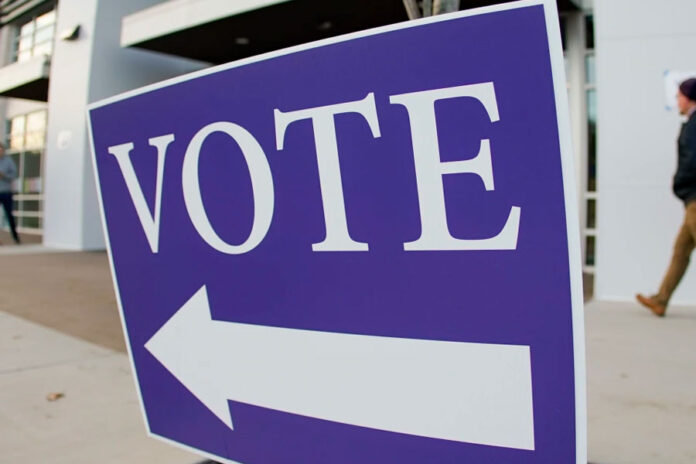
HARRISBURG, Pa. — Some of Pennsylvania’s most populous counties are relocating polling places out of synagogues and other Jewish buildings because the Legislature deadlocked last year over proposals to move next month’s primary election so it would not fall on the first day of Passover.
In Allegheny County, which includes Pittsburgh, election officials relocated 16 polling places from six locations — synagogues as well as a Jewish community center. The primary election is April 23.
The number of polling locations moving as a result of the holiday is a fraction of the total, said Allegheny County spokesperson Abigail Gardner, and all are expected to revert to their former spots in November.
“It is typical that we have to find new polling places every year — with more than 1,300 precincts, it is a natural occurrence that any number of them are changing ownership, closing, not available due to a special event, etc.,” Gardner said Friday. Voters in affected precincts will get letters and signs will be posted at the former locations with directions to the new sites.
Polling locations were also shifted in the Philadelphia area. A 2019 study found the city and its four “collar” counties together had nearly 200,000 Jewish households that comprised about 450,000 people.
Philadelphia moved four synagogue polling places — all had hosted voting for at least the past six years. Bucks County, a Philadelphia suburb, is expected to consider on Monday whether to relocate a synagogue polling place.
And in Montgomery County, the most populous suburb of Philadelphia, eight of the 17 polling places that were moved on Thursday had been located inside synagogues.
Montgomery County Commissioner Neil Makhija, a Democrat who heads its elections board, said Friday it was “unfortunate and disrespectful” that state lawmakers were not able to find a suitable alternative to April 23.
“It’s like putting Election Day on Easter Sunday or Christmas. People are either with family or they’re worshipping. And sure, there are going to be people who vote no matter what,” said Makhija, a Hindu man whose wife is Jewish. “But there will also be people who won’t.”
Pennsylvania law sets most primaries in May, but in presidential election years such as 2024 they are held on the fourth Tuesday in April. Proposals to change this year’s primary date, in part to avoid the Passover conflict but also to become more relevant to the presidential contest, were debated last summer and fall.
The Senate voted overwhelmingly in September to move the primary to March 19, but that proposal ran into opposition in the Democratic-controlled House. The House voted with all Republicans opposed in October to hold an April 2 primary, but that proposal died without Senate action.
By that point, county officials who run elections argued time had become too short to make a change, given the implications for petition circulation as well as the need to secure voting locations and poll workers for a different date.






